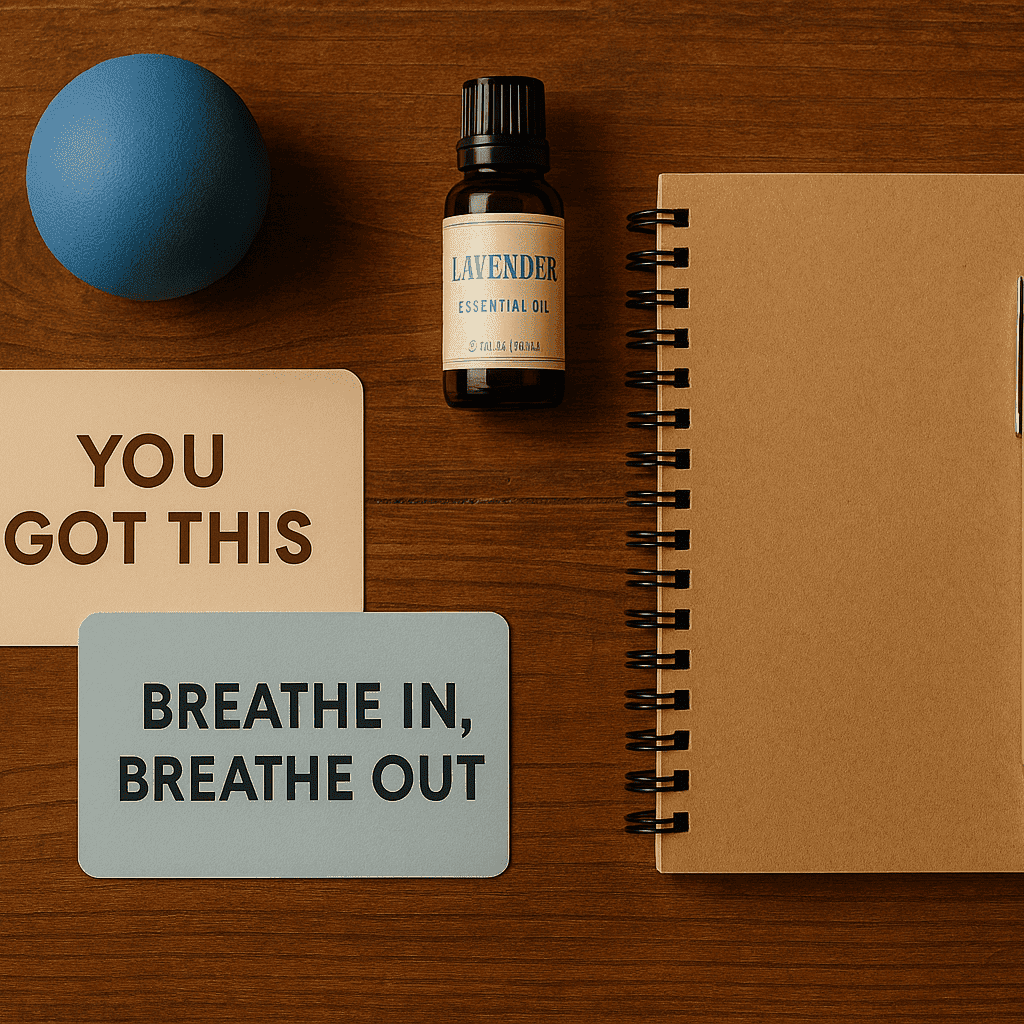Social anxiety can feel like an invisible wall between you and the life you want to live.
Whether it’s the dread before a meeting, the panic at a party, or the struggle to simply make eye contact, social anxiety affects millions globally (NIMH, 2023).
But here’s the good news: effective coping techniques can drastically reduce your anxiety and rebuild your confidence, one step at a time.
Today, we’ll dive deep into proven strategies, blending insights from psychology research, mindfulness practices, and real-world therapy approaches like Cognitive Behavioral Therapy (CBT). Ready to reclaim your peace of mind? Let’s go.
Understanding Social Anxiety
Social Anxiety Disorder (SAD) is more than shyness.
According to the DSM-5, it’s a persistent fear of social or performance situations, where embarrassment or scrutiny feels inevitable. Symptoms include:
- Rapid heartbeat
- Sweating or trembling
- Avoidance of social settings
- Negative self-talk
Fun Fact: Brain imaging studies show that people with SAD have increased amygdala activity, making threat perception more intense.
Why Coping Techniques Are Essential
Without active coping strategies, social anxiety often worsens over time.
Neuroscientists emphasize that consistent coping helps retrain neural pathways (a phenomenon known as neuroplasticity) to reduce automatic fear responses (Davidson & McEwen, 2012).
In short: the right techniques literally reprogram your brain for calmness and resilience.
The Best Coping Techniques for Social Anxiety
Cognitive-Behavioral Techniques (CBT)
Challenge Negative Thoughts
- Practice noticing anxious thoughts (“Everyone will judge me.”)
- Ask: “Is there real evidence?” and “What’s a more balanced view?”
- Replace catastrophizing with realistic affirmations.
Exposure Therapy (Gradual Desensitization)
- Start small: Order coffee or ask a stranger for directions.
- Gradually tackle bigger fears (like public speaking).
- Studies show exposure reduces anxiety significantly over time (Hofmann & Smits, 2008).
Behavioral Experiments
- Test assumptions (“If I stutter, people will laugh.”)
- Collect real-world data to dispute negative beliefs.

Mindfulness and Relaxation Techniques
Mindful Breathing (4-7-8 Technique)
- Inhale for 4 seconds, hold for 7, exhale for 8.
- Activates the parasympathetic nervous system to calm panic.
Body Scan Meditation
- Spend 5–10 minutes focusing attention from head to toe.
- Increases awareness and lowers anxiety (Kabat-Zinn, 1990).
Grounding Techniques (5-4-3-2-1 Method)
- Engage five senses:
- 5 things you see
- 4 you can touch
- 3 you hear
- 2 you smell
- 1 you taste

Social Skills Training
Active Listening & Assertive Communication
- Focus on truly hearing others instead of rehearsing responses.
- Practice making “I” statements instead of apologizing excessively.
Role-Playing Scenarios
- Practice introductions, small talk, and conflict resolution with a trusted friend.
Building Micro-Confidence
- Celebrate tiny victories — every “hello” matters!
Lifestyle Changes to Support Coping
Exercise Regularly
- Aerobic exercise lowers cortisol and boosts mood (Asmundson et al., 2013).
- Aim for at least 30 minutes, 3x per week.
Optimize Sleep Hygiene
- Lack of sleep amplifies anxiety responses.
- Keep a consistent bedtime and wind down electronics an hour before sleep.
Manage Diet
- Caffeine and high-sugar foods spike adrenaline and worsen anxiety.
- Emphasize whole foods rich in magnesium and omega-3s (like salmon and spinach).
Building a Support Network
Join Support Groups
- Consider groups like Anxiety and Depression Association of America for peer support.
- Online forums also offer 24/7 encouragement.
Seek Professional Help
- Therapy — especially CBT — remains the gold standard treatment for social anxiety.
- Explore teletherapy options if accessibility is an issue (Consult a professional).
Coping in the Moment: Quick Tricks
- Safety Statement: Whisper to yourself: “I am safe. This feeling will pass.”
- Visualization: Picture yourself succeeding at the interaction beforehand.
- Calm Kit: Pack stress balls, positive affirmations, lavender oil.

Long-Term Strategies for Thriving
- Set Small Goals: Example: Compliment a stranger.
- Track Progress: Journaling wins and challenges increases self-awareness.
- Practice Self-Compassion: You’re not broken — you’re building new pathways.
Common Mistakes to Avoid
❌ Relying too heavily on avoidance.
❌ Expecting perfection (“I must never feel nervous”).
❌ Comparing yourself harshly to others (everyone struggles sometimes).
Remember: Progress beats perfection.
Conclusion
Conquering social anxiety isn’t about erasing fear — it’s about learning to navigate fear skillfully.
By using these science-backed coping techniques consistently, you can transform your relationship with anxiety and open doors to a richer, more connected life.
Start small. Celebrate often. And know that lasting confidence is already within you, waiting to unfold.
FAQs
What is the fastest way to calm social anxiety?
Mindful breathing (4-7-8 technique) and grounding exercises work within minutes to lower anxiety.
Can social anxiety be completely cured?
While some may experience full remission, for many it’s about managing symptoms effectively and living fully.
What are grounding techniques for social anxiety?
Grounding anchors you to the present using sensory experiences, breaking the cycle of catastrophic thinking.



Add a Comment